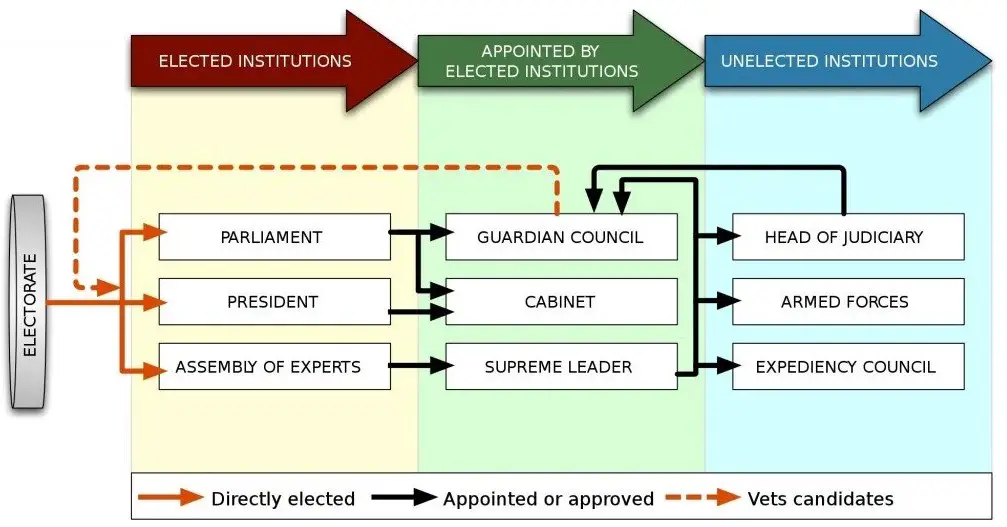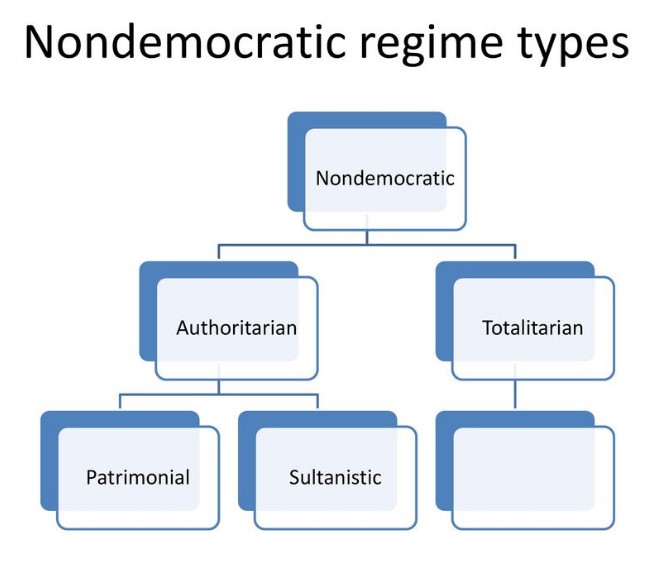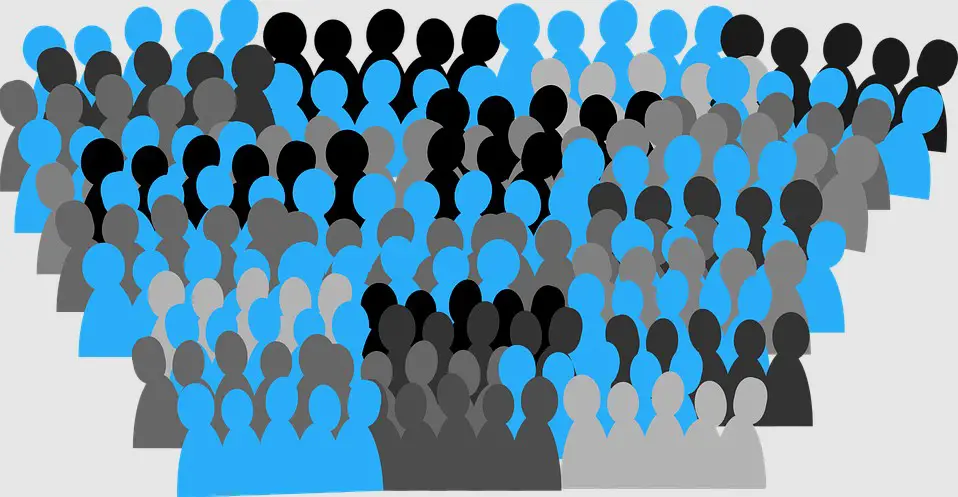Governments worldwide operate under various principles, directly impacting their citizens’ lives, freedoms, and the country’s overall governance structure. The dichotomy between democratic and non-democratic regimes forms the crux of political science debates, illustrating the broad spectrum of how societies are organized and governed. At the heart of this discussion is the fundamental difference in how power is obtained, exercised, and justified within these systems.
The difference between democratic and non-democratic governments lies primarily in their approach to power distribution, decision-making processes, and the extent of citizen participation. Democracies are characterized by free and fair elections, where power is derived from the consent of the governed. In contrast, non-democratic regimes consolidate power within a single entity or a select few, often disregarding the will or welfare of the populace.
This topic is not just academically intriguing; it has real-world implications on international relations, human rights, economic development, and the global fight for freedom and equality. The distinction affects everything from individual rights within a country to the way nations interact on the international stage. As we explore these differences, it’s essential to recognize the impact governance has on the fabric of society and the individual lives within it.

Foundations of Democracy
Definition and Key Principles
Democracy stands as a system of government where power lies in the hands of the people. It’s a principle that upholds individual freedom, equality, and fair representation. At its core, democracy is characterized by the ability of citizens to have a say in the decisions that affect their lives, either directly or through elected representatives.
The key principles of democracy include the separation of powers, rule of law, and protection of individual rights and freedoms. These principles ensure that no single entity has unchecked power, laws apply equally to all, and every individual’s basic rights are safeguarded.
Types of Democratic Systems
There are several types of democratic systems, each with unique features and mechanisms of governance. The two most prevalent forms are:
- Parliamentary Democracy: Here, the government is elected from the parliamentary representatives. The head of the state may be a monarch or a president, but the prime minister, chosen from the legislature, holds executive powers.
- Presidential Democracy: In this system, the president is directly elected by the people and serves as both the head of state and the head of government, distinct from the legislative body.
Features of Democratic Government
Citizen Participation
In a democracy, citizen participation is fundamental. It’s not just about voting in elections but also about being involved in decision-making processes, from local governance to national policy formulation. This engagement is vital for the health and vibrancy of a democratic society.
Rule of Law
The rule of law is a cornerstone of democratic governance, ensuring that all individuals and institutions are subject to and accountable under the law. This principle guarantees fairness and justice within society, protecting citizens from arbitrary governance.
Free and Fair Elections
Central to democracy is the conduct of free and fair elections, allowing citizens to elect their representatives in a transparent, competitive, and equitable manner. These elections are crucial for the legitimacy of democratic institutions and the peaceful transfer of power.
Protection of Rights and Freedoms
Democracies are defined by their commitment to protecting individual rights and freedoms, including freedom of expression, religion, and the press. These rights are essential for the free exchange of ideas, accountability, and the overall well-being of society.
Non-Democratic Governments Explained
Definition and Characteristics
Non-democratic governments differ significantly from democracies, primarily in how power is acquired, exercised, and transferred. In these systems, political power is often concentrated in the hands of a single entity or a small group, without the consent or participation of the populace.
Key characteristics include limited political pluralism, absence of free and fair elections, and restrictions on civil liberties. These governments may be autocracies, oligarchies, or totalitarian regimes, where decision-making is centralized and dissent is not tolerated.
Types of Non-Democratic Regimes
Non-democratic regimes can vary widely, but they typically fall into a few categories:
- Autocracies: Power is held by a single ruler, such as a dictator or monarch.
- Oligarchies: A small group of people, often from the same social, political, or economic elite, hold power.
- Totalitarian States: These governments exert control over nearly every aspect of public and private life, often led by a single party or leader.
Key Differences
Power Distribution
The distribution of power marks a fundamental difference between democratic and non-democratic governments. In democracies, power is spread among various branches of government and the populace. In contrast, non-democratic regimes often see power concentrated in the hands of a few or a single authority.
Decision-Making Processes
Democratic governments rely on participation, debate, and consensus for decision-making, ensuring that various viewpoints are considered. Non-democratic regimes, however, make decisions with little to no input from the general population, often prioritizing the interests of the ruling elite over the public.
Accountability and Transparency
Accountability and transparency are hallmarks of democratic governance, with mechanisms in place to hold officials responsible for their actions. Non-democratic systems lack these mechanisms, often resulting in corruption and abuse of power.
Human Rights and Individual Freedoms
Finally, the protection and promotion of human rights and individual freedoms distinguish democratic societies from non-democratic ones. While democracies strive to uphold these rights, non-democratic governments frequently infringe upon them to maintain control and suppress dissent.

Impact on Citizens
In Democratic Systems
Democratic governments impact citizens in profoundly positive ways, promoting engagement, freedom, and equality. The ability to vote, express opinions freely, and participate in the decision-making process not only empowers individuals but also fosters a sense of belonging and community. Furthermore, democracies tend to provide better protections for civil liberties and human rights, contributing to higher standards of living. However, the effectiveness of these systems relies heavily on the active participation and education of its citizens, emphasizing the need for continuous engagement and vigilance to uphold democratic values.
In Non-Democratic Systems
Conversely, non-democratic systems often limit citizens’ freedoms and their ability to influence governance. Individuals may face censorship, oppression, and even persecution for dissenting views, leading to a climate of fear and compliance. The lack of accountability and transparency can result in widespread corruption, economic mismanagement, and social inequalities. Such environments stifle innovation, discourage civic participation, and can lead to social unrest or conflict, deeply affecting the quality of life and human development within these societies.
Global Examples
Democratic Countries: Successes and Challenges
Countries like Norway, Sweden, and New Zealand are often cited as exemplary democratic nations, boasting high levels of citizen satisfaction, robust welfare systems, and strong civil liberties. However, even these nations face challenges, including dealing with immigration, climate change, and maintaining the integrity of their electoral systems amidst the rise of digital misinformation.
Non-Democratic Countries: Overview and Issues
On the flip side, countries such as North Korea, Syria, and Venezuela highlight the struggles within non-democratic regimes. These nations grapple with severe human rights abuses, economic hardship, and political instability, often resulting in significant refugee crises and international condemnation.
Challenges Facing Democracies
Political Polarization
One of the significant challenges democracies face today is political polarization, where ideological divides between parties become so pronounced that it leads to societal fragmentation, hinders legislative processes, and weakens democratic institutions. This polarization can be exacerbated by misinformation and the echo chambers created by social media, challenging the consensus-building essential for democratic governance.
Threats to Free Press and Information
The free press is a pillar of democracy, providing citizens with the information necessary to make informed decisions. However, democracies worldwide are witnessing increased pressure on journalists, censorship, and attacks on media freedom, undermining public trust and accountability.
Voter Apathy and Disenfranchisement
Voter apathy, another challenge, stems from disillusionment with political processes or the belief that one’s vote does not matter. Coupled with disenfranchisement, where specific groups are barred from voting, these issues can lead to decreased participation in elections, weakening the very foundation of democratic governance.
The Role of International Community
Promoting Democracy
The international community plays a crucial role in promoting democracy through diplomatic efforts, development aid, and supporting civil society organizations. International organizations and democracies can offer expertise, funding, and platforms to support democratic transitions, electoral processes, and governance reforms in countries striving for democracy.
Sanctions and Support for Non-Democratic Regions
Conversely, dealing with non-democratic regions often involves a combination of sanctions and dialogue. Sanctions aim to pressure regimes to change their policies, especially concerning human rights abuses and threats to peace. However, they must be carefully targeted to avoid worsening the plight of ordinary citizens. Simultaneously, diplomatic efforts seek to engage these governments in dialogue, promoting peaceful solutions and encouraging steps towards democratic governance.
Frequently Asked Questions
What are the key features of a democratic government?
The key features of a democratic government include citizen participation in governance, adherence to the rule of law, regular free and fair elections, and the protection of human rights and fundamental freedoms. These elements ensure that power remains with the people, who have the authority to elect their leaders and hold them accountable for their actions.
How do non-democratic governments maintain power?
Non-democratic governments maintain power through various mechanisms, such as suppressing dissent, controlling the media, limiting public participation in political processes, and concentrating power in the hands of a single individual or a small group. These regimes often rely on coercion, propaganda, and the absence of a legal framework that ensures checks and balances.
Can a country transition from non-democratic to democratic governance?
Yes, countries can transition from non-democratic to democratic governance through processes such as political reforms, revolutions, or negotiated settlements. These transitions often involve the establishment of democratic institutions, legal frameworks for free and fair elections, and mechanisms for ensuring the protection of rights and freedoms. However, the path to democracy can be complex and challenging, requiring sustained effort and international support.
How does the international community support democratic transitions?
The international community supports democratic transitions through diplomacy, economic assistance, capacity-building programs, and, in some cases, sanctions against regimes that violate human rights. International organizations, foreign governments, and non-governmental organizations play a crucial role in promoting democracy by providing expertise, monitoring elections, and supporting civil society organizations.
Conclusion
The distinction between democratic and non-democratic governments encapsulates the broader debate on governance, freedom, and human dignity. Democracies, with their emphasis on individual rights, accountability, and participation, offer a vision of governance rooted in the collective will and welfare of the people. In contrast, non-democratic regimes, by concentrating power and often disregarding the populace’s will, present challenges to the ideals of freedom and equality.
As the world continues to evolve, the importance of understanding, protecting, and promoting democratic values cannot be overstated. The future landscape of global governance will undoubtedly be shaped by the ongoing struggle between these fundamentally different approaches to power and governance. In this context, the role of informed citizens, vigilant societies, and a supportive international community becomes ever more critical in championing the cause of democracy and human rights worldwide.

